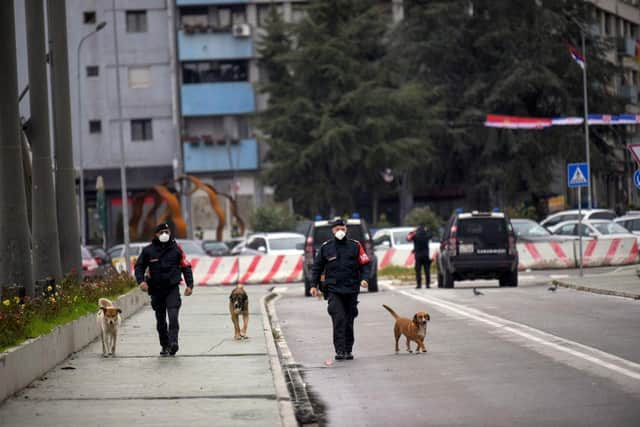Peace in Kosovo under threat over car number plate row
A deadline issued by Kosovan authorities for ethnic Serbs living in Kosovo to give up their Serbian number plates has been extended for 48 hours – after originally being delayed for months. Serbia does not recognise Kosovo’s independence.
Serbian president Aleksandar Vucic has warned the situation was "on the verge of conflict", saying there would be "hell on the ground" if the fines were enforced by police. Serbian police in Kosovo resigned en-masse earlier this month over the issue.
Advertisement
Hide AdAdvertisement
Hide AdKosovan Prime Minister Albin Kurti agreed to delay issuing fines for 48 hours, saying he was "happy to work with the US and the EU to find a solution". However, EU foreign policy chief Josep Borrell said the long-running dispute had not been able to be solved by hours of talks.


He said: "I think that there is an important responsibility on the sides of both leaders for the failure of the talks today and for any escalation and violence that might occur.”
US state department spokesman Ned Price said both sides “will need to make concessions to ensure that we do not jeopardise decades of hard-won peace in an already fragile region”. It is believed around 50,000 Serbs living in the north of the country still use Serbian plates. Under the plans, anyone found still using licence plates predating the territory's 1999 war for independence from Serbia would no longer be valid and the driver subject to a fine of €150 (£130).
Although Kosovo declared independence from Serbia in 2008, a move that has been recognised by more than 100 countries, Serbia and Russia do not recognise it as such. Serbia maintains that Kosovo continues to be part of its territory.
The country, with its largely ethnic Albanian population, was placed under a United Nations protectorate from 1999, following a military crackdown by then-Yugoslavia, which resulted in the Nato bombing of Serbia.
The Yugoslavian wars, which were a series of conflicts in the region between 1991 and 2001, were previously described as Europe's deadliest conflicts since World War Two, with the International Center for Transitional Justice estimating a death toll of 140,000 people.
Comments
Want to join the conversation? Please or to comment on this article.